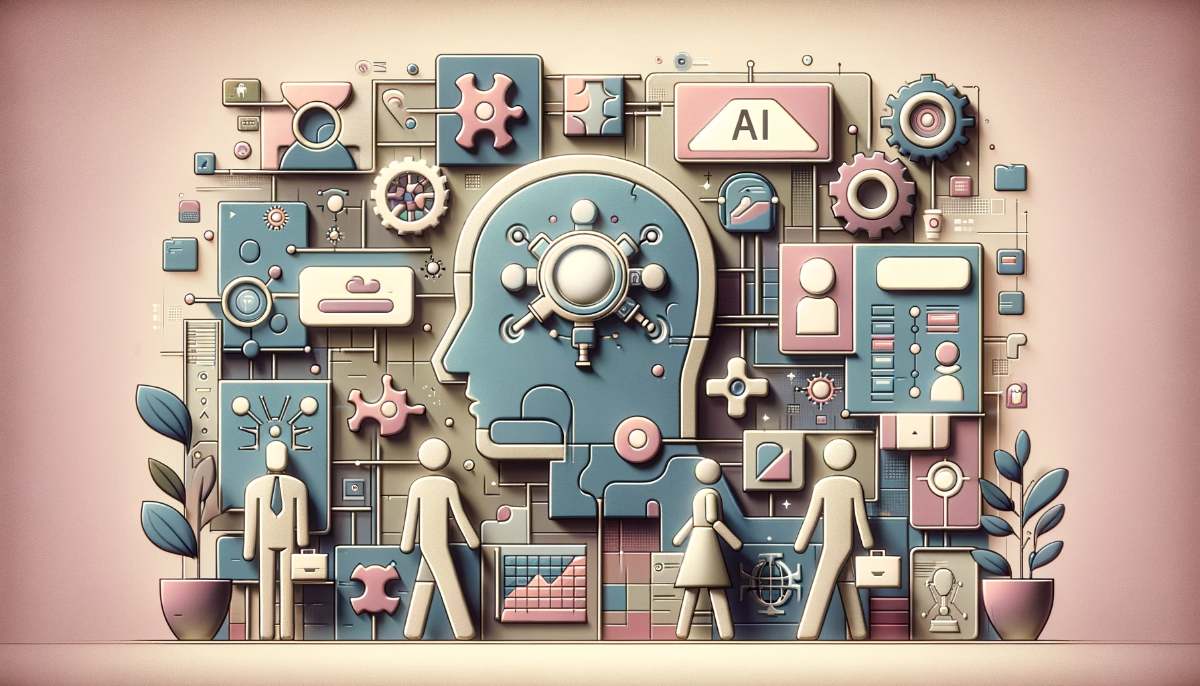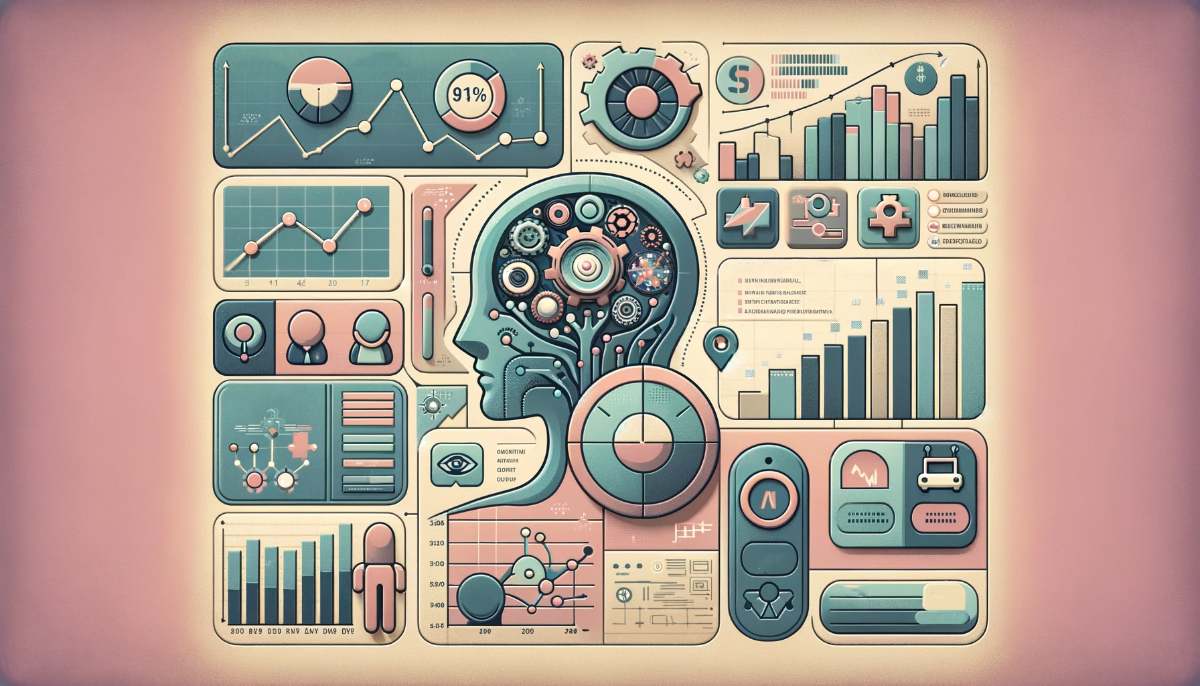Looking to trim your customer support expenses? Consider the power of AI ticketing systems. These smart tools can automate ticket assignment, freeing your support agents to tackle more complex tasks. They can also identify patterns in help desk tickets, helping your team anticipate customer needs. With AI, you can deliver instant support, handle higher ticket volumes, and add savings to your bottom line. AI ticketing systems can even reduce staffing costs by handling a higher volume of tickets without additional human agents. So, if you’re keen to reduce costs while maintaining a high-quality customer experience, it’s time to explore the world of AI ticketing systems.
“With AI’s help, agents can handle tickets up to 50% more quickly, and chatbots autonomously address 70% of routine inquiries. Predictive staffing adjustments have led to a 20% reduction in workforce needs for some businesses, while others have seen a 30% decrease in customer service costs due to smarter resource allocation.”
Automate Ticket Routing
AI-powered ticketing systems can rapidly analyze the content and context of support tickets using natural language processing and machine learning algorithms. For example, the system may scan for keywords, detect the topic or issue type, assess the complexity level, and gauge the urgency or priority level.
By extracting these ticket attributes, the AI system uses automation to determine the most suitable agent to route each ticket to. It might match the ticket to an agent with relevant domain expertise, such as routing a technical software issue to an engineer familiar with that application. Or it could identify that a complex, high priority ticket requires a senior support team with more experience handling advanced issues.
Additionally, the system can factor in the current workload and availability of agents when routing tickets. If a support rep already has a high volume of open tickets, new tickets may get assigned to someone with more capacity to respond quickly. This dynamic, data-driven approach to ticket routing ensures higher quality, faster ticket resolutions.
For example, cloud storage provider Box uses AI to analyze support tickets. It then automatically routes technical issues to engineers with expertise in that specific product area. This has reduced their first response times by over 60% while resolving tickets 2.5x faster on average. The AI learns from past routing decisions to keep improving its accuracy over time as well.

Deploy AI Chatbots
AI chatbots can handle a large volume of routine customer inquiries and requests around the clock. By automating these repetitive, simple interactions, chatbots significantly reduce the number of basic support tickets that human agents need to handle. This cuts labor costs substantially. For example, one source notes that chatbots resolved over 65% of routine queries for cloud storage provider Box.
Additionally, AI chatbots can respond almost instantly to multiple customer questions simultaneously – much faster than a human agent can. Their rapid response times, often just seconds, lead to quicker resolution of issues and lower average handling time per ticket. After implementing chatbots, some companies have seen 20-30% reductions in response times.
Since chatbots don’t require salaries, benefits, training or onboarding like human staff, they allow businesses to offer 24/7 customer support availability without expanding headcount budgets. This dramatically lowers operational costs. One estimate is that chatbots can reduce per-query expenses from $5-$12 down to just $1 on average.
By providing instant, accurate responses around the clock, chatbots also enhance the overall customer experience. Happier customers make fewer repeat support requests stemming from frustration. Higher satisfaction drives loyalty as well. This combination of increased efficiency, lower costs and improved CX makes integrating AI chatbots an impactful way to transform customer support.

Implement Predictive Analytics
AI ticketing systems can analyze historical support data to detect patterns and trends related to common customer problems. This might involve reviewing past tickets to identify spikes around particular product issues that tend to recur at certain times, like server outages each quarter after a product update. Or recognizing that a specific error message often precedes a high volume of related tickets.
Equipped with these insights, companies can then take targeted preventative actions. For example, they might increase server capacity and stability testing before major software releases to minimize outages. Or provide additional training and troubleshooting guides to help customers self-resolve a common error instead of opening repetitive tickets.
One company that employed this approach is cloud software platform Zendesk. By applying machine learning to six years of historical support data, Zendesk was able to pinpoint periods of increased ticket volume around recurring issues. They then optimized server resources ahead of time, enhanced education, updated help articles, and pushed notifications to prevent problems proactively.
Over time, this reduced reactive ticket volumes by over 10,000 per quarter – a substantial cost savings from avoiding influxes of repetitive issues. Customers also benefited from fewer outages and interruptions. AI predictive analytics transformed customer support from a reactive cost center to a proactive customer success function.

Enable Automated Knowledge Base Search
Here are some key ways that AI can help customers self-serve to find answers to common issues and reduce the need to open support tickets.
AI powers robust knowledge base search capabilities that can understand customer questions submitted in natural language. It then serves up the most relevant help articles to address their inquiry, allowing many users to self-serve without needing agent assistance. For example, cloud software provider Zendesk uses AI search to analyze queries and match them to related content.
AI analyzes customer support data and interactions to identify gaps in self-service content. Businesses can then target and create new help articles, tutorials, FAQs, and forum posts around issues that customers are commonly forced to get live support for. Expanding self-service resources directly reduces human-assisted tickets.
AI boosts self-service by powering robust search, automated chatbots, and providing data insights to improve knowledge bases. This empowers customers to independently find answers faster without opening tickets for basic issues that agents would otherwise have to handle.

Reduce Average Handling Time
AI tools can suggest relevant responses to agents in real-time during customer interactions. By automatically pulling up contextual information, next best actions, and draft replies, AI eliminates the need for agents to manually research solutions or type out responses from scratch. Studies show AI-assisted agents resolve tickets 28-50% faster.
Additionally, AI performs routine tasks like wrapping up calls, documenting issues, and updating systems that agents previously had to do manually after conversations. By automatically generating call summaries, categorizing issues, and filling out forms, AI slashes after-call work time significantly.
In summary, AI boosts productivity by reducing response times, automating wrap-up tasks, and deflecting basic inquiries. This cuts average handling time per ticket while allowing agents to focus on complex issues requiring human expertise and empathy. Integrating AI optimization allows contact centers to improve efficiency, costs, and customer satisfaction simultaneously.
Offer 24/7 Support
AI allows businesses to offer always-on customer service economically by reducing staffing budgets and overtime costs associated with human agents. This drives significant savings while also meeting rising customer expectations for instant, on-demand support.
AI chatbots and virtual agents can provide customer support around the clock without ever needing rest or time off. Their continuous availability ensures customers can get assistance at any hour rather than just during standard business hours when human agents are online. This eliminates the need to staff overnight and weekend shifts with live reps.
Additionally, AI tools like chatbots handle large volumes of routine inquiries that would otherwise fall to human agents. With AI resolving 65-70% of common questions automatically, fewer live agents are needed to manage overall ticket volumes.

Optimize Resource Allocation
AI can provide insights to better forecast support demand and optimize resource allocation, preventing overstaffing and reducing costs.
First, AI tools can analyze historical ticket and case data to accurately forecast future support demand. By understanding trends and patterns in volumes, AI enables better planning around staffing levels, shift schedules, and budgets to meet needs without overspending on excess capacity. For example, one source noted that by leveraging forecasting, a hospitality company reduced staffing requirements by 20% while still providing excellent service.
Additionally, AI can monitor support queues and SLAs in real-time and make dynamic adjustments. If chat volume spikes during an outage, AI might instantly deploy more bots and agents to handle the surge. It might also temporarily re-allocate experts from other teams to aid with complex technical issues. This flexibility ensures support leaders can cost-efficiently scale resources up and down to match demand.
Finally, AI data analysis provides guidance on the optimal mix of bots, agents and tools needed to maintain SLAs at the lowest cost. By modeling different scenarios, AI can determine the ideal way to distribute support resources. One manufacturer stated that AI helped them cut overall customer service delivery costs by 30% through optimized allocation strategies.
Conclusion
AI plays a pivotal role in transforming customer support operations. It enables 24/7 service through chatbots, reduces ticket volumes by enabling self-service and predictive issue resolution, and cuts handling times by assisting agents with real-time suggestions. AI also optimizes resource allocation by accurately forecasting support demand and dynamically adjusting resources. These capabilities not only reduce costs but also enhance the customer experience by providing faster, more efficient support. As businesses continue to seek ways to improve service while controlling costs, the role of AI in customer support will only grow more significant.
If you like this post, check out other AI-related articles:
How can automated ticket routing improve customer satisfaction


